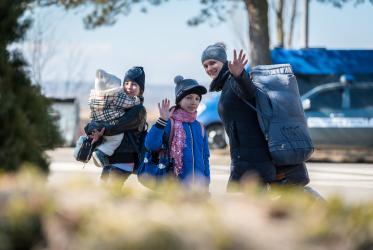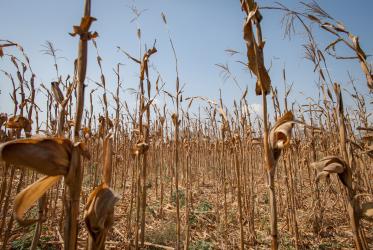On 5 May each year the Council of Europe marks Europe Day. It is a day to celebrate peace and unity across the continent. It is also a day to honour successes of Europe—widespread peace and free movement at internal borders, increasing prosperity and cooperation, recovery and flourishing following times of crisis.
It is also a time to reflect on where we want to go, who we want to be as Europe.
The great challenge of Europe is holding together dozens of nations, societies, languages, and political systems in peace and unity. In this diversity—squeezed together on a small landmass—values conflict, competition flares, and discord can reign.
Sometimes it is hard to find what we hope to celebrate on Europe Day.
Looking back, we see the lingering effects of two great wars recently waged on European soil, the Armenian genocide, and violent civil conflicts. We also live in the legacy of centuries of antiziganism and long histories of occupation that continue to foster suspicion and oppression of those we call ‘other’.
Today migrants drown on their way to European shores, gun violence like that of Paris and Copenhagen shock and unsettle, and political and economic uncertainty threaten relationships among member states of the European Union.
Europe’s churches, of course, are touched by all of this. The flourishing and failings of Europe affect the lives of the people of the church and shape its mission. Our pilgrimage is defined, in part, by Europe’s own struggles to be at peace with itself.
A hallmark of church life in Europe is engagement between church and society, including the historic legacy of state churches. Many churches here are keenly interested in decisions made in the political sphere. Many churches are committed to understanding, responding to, and participating in political processes that impact life in Europe and beyond. And many churches take on the task of organizing common action and advocacy in direct relationship to the institutions and governments that make up European political life.
In this light, it is no surprise that European responses to the Pilgrimage of Justice and Peace take political engagement seriously.
In about 200 days, the world’s attention will turn to Paris and the United Nations climate change talks starting 30 November. This gathering carries with it hopes for a binding, worldwide agreement on climate change. The churches of Europe are getting ready.
In varied responses, actions large and small, churches across Europe are journeying toward Paris and weaving together the three dimensions of the pilgrimage call: celebrating the gifts, visiting the wounds, and transforming the injustices.
Celebrating the gifts
On our different paths toward Paris, we offer thanks for the gifts God has given us for this journey.
We are thankful for the gift of scripture and its clear preferential option for the poor. We are thankful for prophetic words that continue to fuel us today. We are thankful for the peace and security that allows pilgrims from Scandinavian countries to walk from Arctic islands down to German borders.
We are grateful for commitment to Christian unity that will see ecumenical services take place in the east, west, north, and south of Europe. We are grateful for openness to the work of the Spirit and the role of prayer in our quest for justice here on Earth.
We also celebrate joyfulness and creativity that accompanies this difficult and daunting work. Whether it is in a cycling tour through Hungary, or a spirited public debate in Germany, the churches are undertaking their pilgrimage with an appreciation for goodness and grace.
Visiting the wounds
The churches of Europe also know that pilgrimage is difficult and draws us into relationship with the wounds of the world. Looking toward the Paris climate change talks, the churches of Europe increasingly include the Earth and its vulnerable species and ecosystems among the oppressed. This deep appreciation of the Earth’s poverty brings us face-to-face with our problematic use of resources and wealth. We have organised whole societies to maximise consumption and minimise accountability. So, we journey to Paris with the hopes that our systemic sins be met with systemic acts of repentance and reconciliation.
Transform the injustices
Reconciliation is well rehearsed on the European continent. In a few days, we will commemorate the 70th anniversary of the end of World War II. In the span of just two generations, European nations reoriented themselves from a posture of war to one of imperfect diplomacy and fellowship. The churches here have been important peace brokers, including the formation of the Conference of European Churches as an early attempt to heal post-war East-West divides. We are again poised for this role as we heed the call to pilgrimage and seek to transform climate injustices that touch all aspects of life on Earth.
Robert Schuman, a French politician instrumental in the founding of the European Union, once famously said, “Europe will not be made all at once, or according to a single plan.” This is also true of our pilgrimage here. Our diversity will guarantee challenge and blessed surprise. While we look toward Paris, we also look around and look beyond—journeying together, pilgrims on a common journey, open to God’s transforming spirit wherever it may lead.






